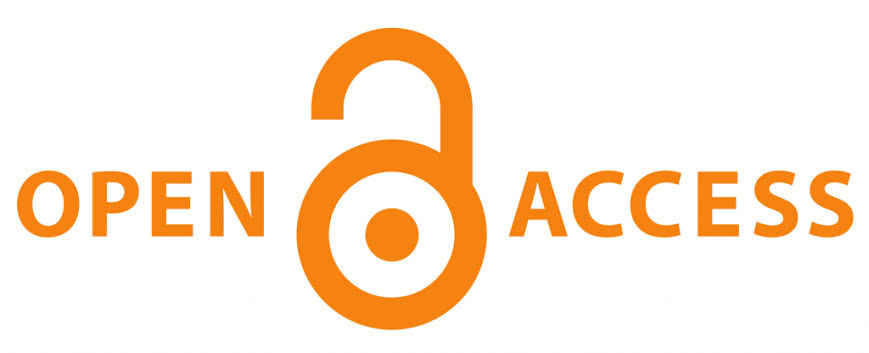KEWENANGAN KONSTITUSIONAL (HAK PREROGRATIF) PRESIDEN DALAM MEMBERIKAN GRASI KEPADA TERPIDANA ATAS KASUS NARKOBA
Abstract
ABSTRAK
Kewenangan Presiden dalam pemberian Grasi kepada terpidana termaktub dalam Undang-Undang Dasar Tahun 1945 menempatkan kedudukan yang dimiliki Presiden pada posisi dua fungsi dalam struktur ketatanegaraan Indonesia, yaitu fungsi sebagai kepala negara dan kepala pemerintahan. Dalam praktiknya kekuasaan Presiden Republik Indonesia sebagai kepala negara disebut dengan istilah Hak Prerogatif Presiden†atau Hak Mutlak yang dimiliki Presiden bersifat mandiri diartikan sebagai kekuasaan penuh dan hak istimewa Presiden yang tidak dapat diganggu oleh lembaga negara tertentu. Pemberian grasi kepada terpidana merupakan kewenangan konstitusional Presiden yang diberikan oleh Pasal 14 ayat (1) UUD Tahun 1945, dengan merujuk pada Pasal 11 UU No. 22 Tahun 2002 tentang Grasi sebagaimana telah diubah dengan UU No 5 Tahun 2010, Pasal 1 UU Nomor 5 Tahun 2004 tentang Perubahan atas UU Nomor 14 Tahun 1985 tentang Mahkamah Agung, dan Pasal 27 UU No. 48 Tahun 2009 tentang Kekuasaan Kehakiman, yang pada dasarnya Presiden dalam pemberian grasi walaupun diharuskan memerhatikan pertimbangan Mahkamah Agung, Presiden berhak mengabulkan atau menolak permohonan grasi yang diajukan terpidana, dengan demikian pertimbangan tersebut tidak mengikat dan tidak mutlak mempengaruhi hak penuh Presiden. Permasalahan dalam pemberian grasi adalah mengenai eksistensi Grasi dalam UUD 1945 dan perundang-undangan berkaitan dengan Grasi tidak mengatur secara eksplisit dan merinci mengenai alasan dan batasan permohonan grasi yang diberikan oleh Presiden, yang tersirat hanya mengatur mengenai prinsip-prinsip umum tentang grasi serta tata cara pengajuan dan penyelesaian permohonan grasi. Untuk itu, Presiden dalam memutus mengabulkan atau menolak permohonan grasi kepada terpidana selayaknya mempunyai dasar atau kriteria yang jelas dalam pemberian grasi.
Kata Kunci: Kewenangan, Presiden, Grasi, Terpidana.
ABSTRACT
The authority of the President in granting pardons to convicts contained in the 1945 Constitution places the position of the President in the position of two functions in the Indonesian constitutional structure, namely functions as heads of state and heads of government. In practice, the power of the President of the Republic of Indonesia as the head of state is referred to as the "President's Prerogative Rights" or Absolute Rights which are owned by the President to be interpreted as full power and privileges of the President which cannot be disturbed by certain state institutions. The granting of clemency to the convict is the constitutional authority of the President granted by Article 14 paragraph (1) of the 1945 Constitution, with reference to Article 11 of Law No. 22 of 2002 concerning Clemency as amended by Law No. 5 of 2010, Article 1 of Law Number 5 of 2004 concerning Amendments to Law Number 14 of 1985 concerning the Supreme Court, and Article 27 of Law No. 48 of 2009 concerning Judicial Power, which is basically the President in granting pardons even though he is required to pay attention to the considerations of the Supreme Court, the President has the right to grant or reject the petition for clemency submitted by the convicted person, thus these considerations are not binding and do not absolutely affect the President's full rights. The problem in granting clemency is regarding the existence of clemency in the 1945 Constitution and legislation relating to clemency not explicitly regulating and detailing the reasons and limits for pardon applications granted by the President, which implies only governing the general principles of clemency and the procedure for submission and settlement of requests for clemency. For this reason, the President in deciding to grant or reject a request for clemency from a convict should have a clear basis or criteria for granting clemency.
Keywords: Authority, President, Clemency, Convicted person.
References
DAFTAR PUSTAKA
Anom Suryo Putra, Hukum Konstitusi Masa Transisi; Semiloka, Psikoanalisis dan Kritik Ideologi, Bandung: Nuansa Cendekian, 2003.
Darwan Prinst, Hukum Acara Pidana Dalam Praktik, Jakarta : Penerbit Djambatan, 2002.
E.Y. Kanter dan S.R. Sianturi, Asas-asas Hukum Pidana di Indonesia dan Penerapannya, Jakarta: Storia Grafika, 2002.
Jimly Asshiddiqie, Format Kelembagaan Negara dan Pergeseran Kekuasaan dalam UUD 1945, Yogyakarta, FHUII, 2002.
Purnadi Purbacaraka dan A. Ridwan Halim, Filsafah Hukum Pidana dalam Tanya Jawab, Jakarta: Penerbit Rajawali, 1982.
Rendi Wijaya, Posisi Grasi dalam Sistem Hukum Nasional, Jakarta: Posted, 2012.
http://anugrahrizki.biogspot.com/2012/06/Pengujian Keputusan Presiden tentang Pemberian Grasi kepada Schapelle Leight Corby. html, diakses 21 Desember 2019.
DOI: 10.33751/palar.v5i1.1186
 Abstract views : 26964
Abstract views : 26964
Refbacks
- There are currently no refbacks.

.png alt=)
























